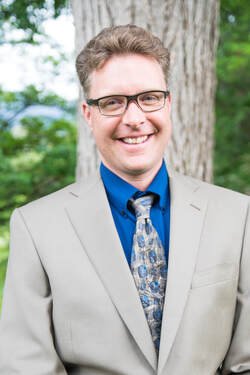Our mission is to use education, technology, and information to improve river management and project impacts.
Our Story
Our story is simple. We grew frustrated when we had to use outdated, inaccurate, and poor resolution data to understand and improve complex river issues. Our research and experiences taught us new tools, technologies, and creative approaches to collect affordable data at meaningful scales. This naturally grew into a business plan, but there was more to this niche. Why just help our business when we can help all businesses improve their conservation impacts? With over a billion dollars spent every year on improving the USA’s rivers, the work is plentiful but the shortage is cost-effective solutions that really do improve rivers. We don’t have all the answers, but we are committed to ongoing research and helping river projects and management with gathering the data they need (existing or new) and/or helping to arrive at the information needed to achieve the stated goals.
Why a nonprofit? We get asked this all the time. The answer is because we are driven by our mission and because education is a large component of our business model.
Services: We can be hired in a typical fee-for-service agreement or we can help your project find grants and funding.
Our Team
Our Board of Directors
Recent Publications
Javernick, L., & Bertoldi, W. (2019). Management of vegetation encroachment by natural and induced channel avulsions: A physical model. River Research and Applications, 0(0). https://doi.org/10.1002/rra.3494
Fryirs, K. A., Wheaton, J. M., Bizzi, S., Williams, R., & Brierley, G. J. (2019). To plug-in or not to plug-in? Geomorphic analysis of rivers using the River Styles Framework in an era of big data acquisition and automation. Wiley Interdisciplinary Reviews: Water, 0(0), e1372. https://doi.org/10.1002/wat2.1372
Wheaton J.M., Bennett S.N., Bouwes, N., Maestas J.D. and Shahverdian S.M. (Editors). 2019. Low-Tech Process-Based Restoration of Riverscapes: Design Manual. Version 1.0. Utah State University Restoration Consortium. Logan, UT. Available at: http://lowtechpbr.restoration.usu.edu/manual
Javernick, L. A., Redolfi, M., and Bertoldi, W. (2018). Evaluation of a numerical model’s ability to predict bed load transport observed in braided river experiments. Advances in Water Resources, 15, 207-218.
Silverman NL, Allred BW, Donnelly JP, Chapman TB, Maestas JD, Wheaton J, White J and Naugle DE. 2018. Low-tech riparian and wet meadow restoration increases vegetation productivity and resilience across semi-arid rangelands. Restoration Ecology. DOI: 10.1111/rec.12869.
Nahorniak M, Wheaton J, Volk C, Bailey P, Reimer M, Wall E, Whitehead K and Jordan C. 2018. How do we efficiently generate high-resolution hydraulic models at large numbers of riverine reaches? Computers & Geosciences. 119: 80-91. DOI: 10.1016/j.cageo.2018.07.001.
Macfarlane WW, Gilbert JT, Gilbert JD, Saunders WC, Hough-Snee N, Hafen C, Wheaton JM and Bennett SN. 2018. What are the Conditions of Riparian Ecosystems? Identifying Impaired Floodplain Ecosystems across the Western U.S. Using the Riparian Condition Assessment (RCA) Tool. Environmental Management. DOI: 10.1007/s00267-018-1061-2.
Hamill D.*, Buscombe D., and Wheaton JM. 2018. Alluvial substrate mapping by automated texture segmentation of recreational-grade side scan sonar imagery. PLOS ONE. 13(3): e0194373. DOI: 10.1371/journal.pone.0194373









